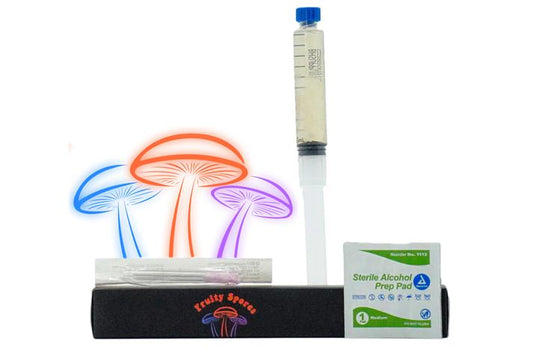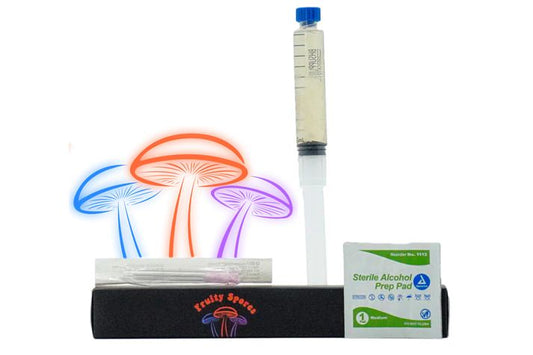MEET OUR BESTSELLERS
Discover our most loved products












CHOOSE YOUR COLLECTION
WE ARE AVAILABLE 24/7
Free delivery on orders over $100!
Satisfied or refunded
WE ARE AVAILABLE 24/7
Free delivery on orders over $100!
Satisfied or refunded
WE ARE AVAILABLE 24/7
Free delivery on orders over $100!
Satisfied or refunded
WE ARE AVAILABLE 24/7
Free delivery on orders over $100!
Satisfied or refunded
WE ARE AVAILABLE 24/7
Free delivery on orders over $100!
Satisfied or refunded
WE ARE AVAILABLE 24/7
Free delivery on orders over $100!
Satisfied or refunded
WE ARE AVAILABLE 24/7
Free delivery on orders over $100!
Satisfied or refunded
WE ARE AVAILABLE 24/7
Free delivery on orders over $100!
Satisfied or refunded
WE ARE AVAILABLE 24/7
Free delivery on orders over $100!
Satisfied or refunded

Learn more about who we are — and save 10%!
We believe that growth in cultivation starts with connection and knowledge. That’s why our team invites you to meet the minds behind Fruity Spores, explore our free educational eBook, and enjoy 10% off as you begin your own cultivation journey.
FAQ'S
Find the most frequently asked questions below.
Collapsible content
What Are Mushroom Spores and Why Are They Important for Cultivation?
Mushroom spores are the microscopic reproductive cells that allow fungi to reproduce and spread. In mushroom cultivation, spores are the starting point for growing new strains. When germinated under sterile conditions, they form mycelium — the root-like network that eventually produces mushrooms. Understanding how to work with spores is essential for any successful cultivator.
Are Mushroom Spores Legal to Buy and Own in the United States?
Yes, in most U.S. states, mushroom spores are legal to buy and possess for microscopy and educational purposes since they do not contain psilocybin. However, it’s important to check your state laws before purchasing, as a few states — such as California, Georgia, and Idaho — have restrictions on spore sales.
What’s the Difference Between Mushroom Spores and Liquid Culture?
Mushroom spores are the genetic blueprint, while liquid culture contains living mycelium that has already grown from those spores. Spores are best for learning genetics and strain variation, while liquid culture offers faster and more reliable colonization for growers looking to save time.
How Should Mushroom Spores Be Stored for Long-Term Viability?
Spores should be kept in a cool, dark, and dry environment to preserve viability. The ideal storage method is inside a sealed spore syringe or print, placed in a refrigerator (around 35–45°F). Proper storage ensures the spores remain viable for microscopic study or future cultivation research.
CUSTOMER REVIEWS
POPULAR POSTS
View all-

Exploring the Flavor and Benefits of Hillbilly ...
You don't have to be a forager or an extreme mycology geek to have an appreciation for how varied mushrooms actually are. Some you cook up, some you learn about,...
Exploring the Flavor and Benefits of Hillbilly ...
You don't have to be a forager or an extreme mycology geek to have an appreciation for how varied mushrooms actually are. Some you cook up, some you learn about,...
-

When Exploring Options: Why Many Enthusiasts Pr...
Mushrooms have long intrigued both scientists and hobbyists alike. Every strain brings with it its own tale, its own personality, and its own array of challenges that render it interesting....
When Exploring Options: Why Many Enthusiasts Pr...
Mushrooms have long intrigued both scientists and hobbyists alike. Every strain brings with it its own tale, its own personality, and its own array of challenges that render it interesting....
-

Why Hillbilly Pumpkin Mushrooms Are Gaining Att...
Mushrooms have a way of sneaking up on us. You think you've heard it all, and then some new strain appears and turns everything around. That's what's occurring with Hillbilly...
Why Hillbilly Pumpkin Mushrooms Are Gaining Att...
Mushrooms have a way of sneaking up on us. You think you've heard it all, and then some new strain appears and turns everything around. That's what's occurring with Hillbilly...










